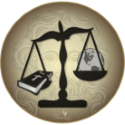Monday, October 22
Theme for the week:
Disciples Learn to Judge (Under Jesus) With a Right Measure
Matthew 7:1-2
Jesus taught: Do not judge, or you too will be judged. For in the same way you judge others, you will be judged, and with the measure you use, it will be measured to you.
We see Jesus clearly saying do not judge, which is been quoted by many people in the face of perceived criticism. This is also a good place to acknowledge that Jesus in another place tells us, stop judging by mere appearances, but instead judge correctly (John 7:24). This reminds us that Jesus is not advocating a zero judgment policy. So what does Jesus mean? Think of it this way. Have you ever had somebody say to you “don't judge me!” after you compliment them? Not likely. Though it may happen, it will be rare. Most people say “don't judge me” in light of criticism. We want to be very careful with our criticisms and judgments. Follow God and his lead here. God clearly has the right to judge us, but that's not his goal. So even if you have the right to judge that should never be your goal. Your goal should connect to God’s goal, which we will cover tomorrow.

Prayer Prompt
Father God, teach me to judge well – not by mere appearances – but by your Holy Spirit, the One who in Christ sets me and all people free from the Law of sin and death. I pray in Jesus’ name. Amen.
Micro-Meditation
Psalm 1:1-6
- Blessed is the one who does not walk in step with the wicked or stand in the way that sinners take or sit in the company of mockers,
- but whose delight is in the law of the LORD, and who meditates on his law day and night.
- That person is like a tree planted by streams of water, which yields its fruit in season and whose leaf does not wither— whatever they do prospers.
- Not so the wicked! They are like chaff that the wind blows away.
- Therefore the wicked will not stand in the judgment, nor sinners in the assembly of the righteous.
- For the LORD watches over the way of the righteous, but the way of the wicked leads to destruction.
-
Read: the verses twice.
-
Mark: the words or phrases that catch your attention.
-
Meditate: talk (better yet write) with God about those words. Ask him to impress things upon your heart and mind; expect a response from the Lord.

Pondering Point
What does walking with the wicked bring to mind for you? What about standing with sinners? Sitting with mockers? How might God convict you here?

